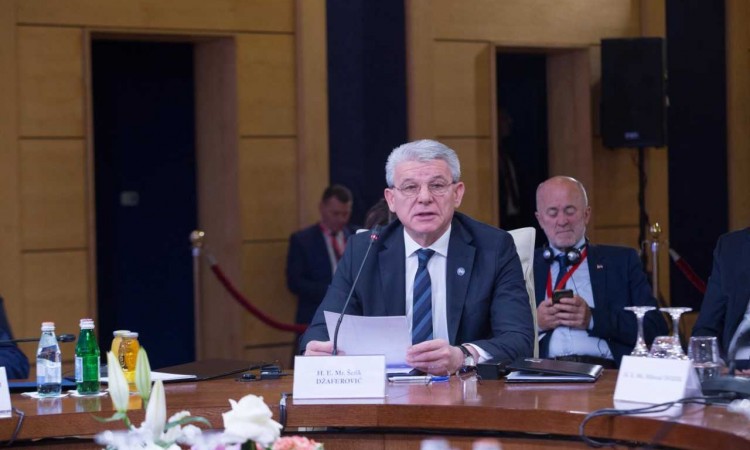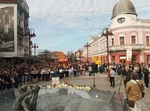
The EU and NATO integration processes have a crucial role in shaping the region's future, and they represent the best framework for realising our collective security, stability and prosperity aspirations, Bosnia's Presidency member Sefik Dzaferovic said at the Brdo Brijuni Process Summit, in Tirana, on Thursday.
Regional cooperation, he said, based on mutual respect, equality, trust, shared values and interests remains crucial for solving numerous challenges the region is facing, and for its EU and NATO integration process.
"Although the countries from the region didn't achieve the planned progress in the past six years, the EU and NATO integration processes have had significant influence on the development of democracy, rule of law and the respect for human rights," Bosniak member of Bosnia's tripartite Presidency member said.
According to him, these processes were crucial for the solving of open bilateral issues in the region, citing Montenegro's NATO accession and the signing of the Prespan Agreement between Greece and North Macedonia, resolving a long-standing dispute over the North Macedonia's name, as especially important.
Speaking about Bosnia and Herzegovina, Dzaferovic said it too made significant progress.
He recalled that foreign ministers of NATO member states approved the submission of Bosnia's first Annual National Programme (ANP) in December last year, as the continuation and improvement of the existing cooperation between Bosnia and NATO.
Bosnia also made progress in its EU integration process, he said.
"It submitted its answers to the European Commission's Questionnaire and now awaits Commission's opinion on Bosnia's EU membership application and the European Council's decision regarding its candidate status," the Presidency member said.
In 2016, the European Commission sent some 3,000 questions to Bosnia, regarding its policy, the rule of law, government and other fields which will tell the Commission what reforms Bosnia needs to implement before becoming an EU member-state. Bosnia submitted its answers and now awaits the Commission's opinion.
Dzaferovic noted that ever since it was established, the Brdo-Brijuni Process has been an essential platform for the strengthening of the regional dialogue, cooperation, solving of open issues and the promotion of the Western Balkans' European future.
"But the situation now is much more complexed than it was six years ago, when the Process was established, and there are many more tensions, political instabilities and security risks. There were also significant changes at the international level that reflected on the relations in the region," he added.
"That is why we must maintain the region's EU integration dynamics. It's up to us to take responsibility and to send the best message to the EU by implementing concrete reforms in our countries and by improving regional cooperation and connections between our countries," Bosnia's Presidency member, Sefik Dzaferovic concluded.
Kakvo je tvoje mišljenje o ovome?
Učestvuj u diskusiji ili pročitaj komentare





 Srbija
Srbija
 Hrvatska
Hrvatska
 Slovenija
Slovenija



























































